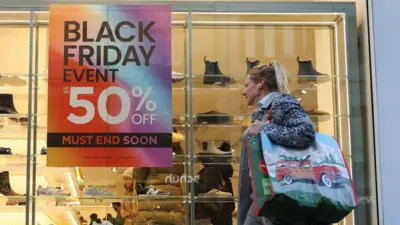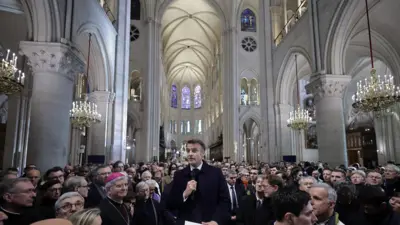We've updated our Privacy and Cookies Policy
We've made some important changes to our Privacy and Cookies Policy and we want you to know what this means for you and your data.
How Berlin will see Hollande victory
Top Stories
- Author, Stephen Evans
- Role, ґуПуґ«ГЅ News, Berlin
On the face of it, the fate of the euro and all the agreements propping it up look fragile again.
There is a new president-elect in Paris who got to power by saying he wanted to renegotiate the "fiscal pact" which his predecessor had forged with German Chancellor Angela Merkel.
Francois Hollande said in his victory speech: "Austerity no longer needs to be our fate.
"We shall bring growth and prosperity - and this is what I shall I tell our European partners, firstly in Germany."
Top Stories
So he has clearly indicated that he wants to renegotiate the deal agreed by the 17 countries of the eurozone incorporating strict limits on spending.
Chancellor Merkel has said bluntly that it cannot be revisited.
On top of that, Mrs Merkel openly backed the defeated candidate Nicolas Sarkozy. She opposed a candidate with whom she now has to deal. In addition, the next French president is a socialist, while the German half of the duo is from the right.
So it does not augur well for harmony between the two main eurozone leaders, as they strive to bring the currency back from the brink.
Top Stories
But the Franco-German relationship may not turn out to be so antagonistic. In the first place, politicians seeking office sometimes talk tough.
Secondly, a left-wing president of France and a right-of-centre chancellor of Germany have in the past worked well together.
In the 1980s and 1990s, President Francois Mitterrand and Chancellor Helmut Kohl buried whatever differences they might have had and brought much change to the European Union.
And, thirdly, Francois Hollande has given no indication that he wants the euro in anything but its present form, with 17 countries using it. He wants the euro to continue as a stable currency, and a protracted renegotiation of deals already done would rock the boat.
But we shall see. Officials in Berlin are indicating that the two leaders should meet within days.
'Growth-friendly'
And already German ministers are starting to talk much more about "growth" - the word that Francois Hollande used repeatedly on the campaign trail.
Foreign Minister Guido Westerwelle said that France and Germany should "quickly get to work on adding a growth pact to the fiscal treaty to promote competitiveness".
The all-important German Finance Minister Wolfgang Schauble says that wages in Germany should rise, so increasing the demand for exports from the rest of the eurozone and raising economic growth.
"By raising pay, Germany would help reduce economic imbalances in Europe", Mr Schauble said.
German ministers are saying much more loudly that growth is important. All this echoes a proposal by the European Union's Economic and Monetary Affairs Commissioner, Olli Rehn, for measures to increase spending.
Getting public finances in order needed to be done, he said, "in a growth-friendly way".
He wants to increase the amount of money the European Investment Bank has available to lend for new building projects on things like transport links.
Mr Hollande embraced the idea as he campaigned and Chancellor Merkel has not ruled it out.
But the obvious question is: can you increase spending on big public projects while keeping spending tight by restricting it to what revenues allow?
Can governments be easier with money and tighter with money? To say that spending can be increased and to say that spending must be constrained offers an obvious contradiction.
The view of officials in Berlin is that austerity has been agreed and cannot be loosened - and that this view will be clearly put to the new French leader.
There may be a change of tone - with more emphasis on "growth" - but the bottom line in Berlin is that the way already agreed is the way to go.
Top Stories
More to explore
Most read
Content is not available








